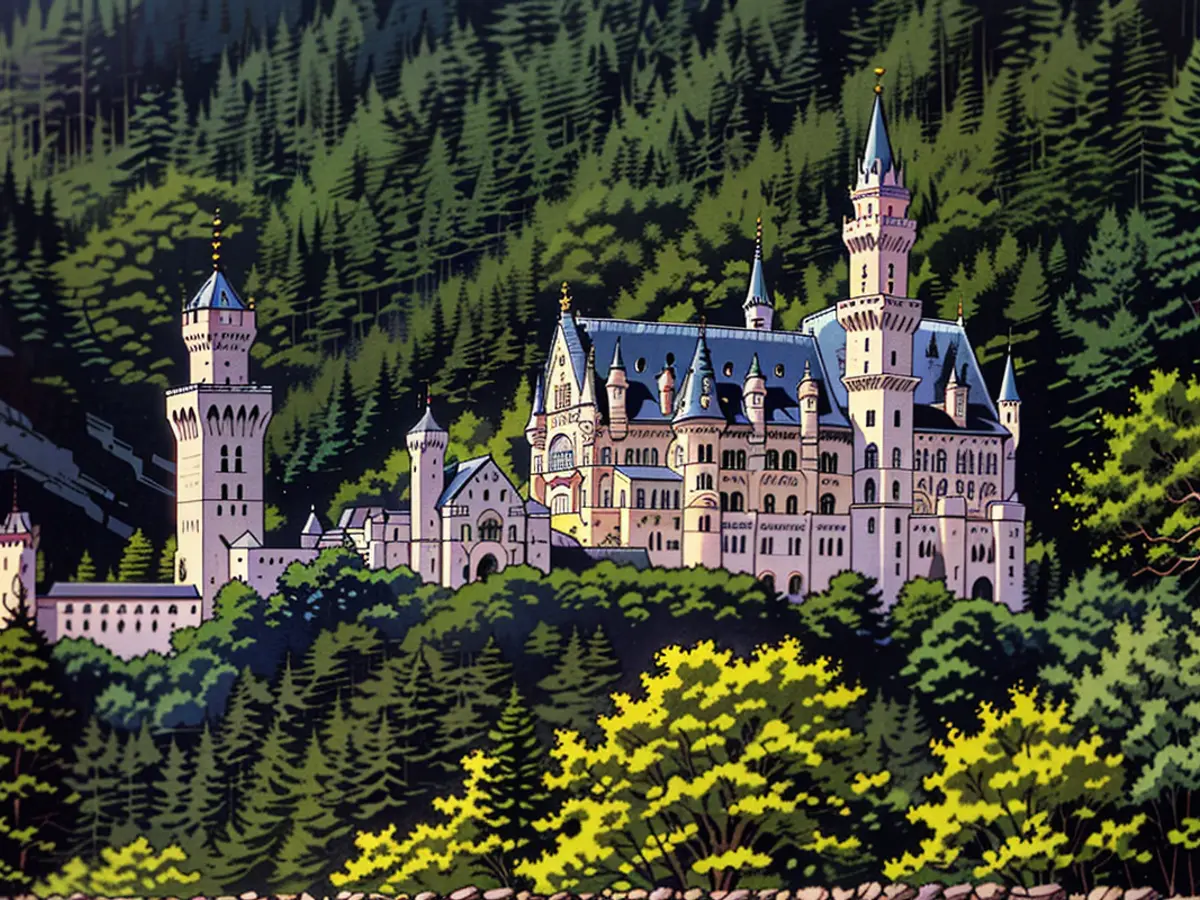Tourism - Dispute over Neuschwanstein enters heated phase before EU court
Another brand dispute related to Neuschwanstein Castle is entering the decisive phase at the EU Court. A hearing over Bayern's lawsuit against the European Union Intellectual Property Office (EUIPO) took place in Luxembourg on Thursday, according to a court spokesperson.
Bayern is suing over an EUIPO decision from 2019, which registered the Union trademark "Neuschwanstein" in favor of the German Association of Souvenir Gifts and Awards. This registration covered items such as jewelry, souvenir articles, household goods, and clothing.
The Free State wanted to declare this mark invalid at the EUIPO: We have older rights under German law, specifically for the business name "Neuschwanstein," such as for operating museums and selling goods in museum shops. The Office rejected the application. Bayern failed to prove that it used the mark outside of local business transactions.
The Free State is now appealing this decision at the EU Court. A judgment is expected in a few months.
The dispute between the state and the association has been ongoing for years. In 2018, the European Court of Justice (ECJ) ruled on the Neuschwanstein trademark once before. At that time, Bayern won and was allowed to continue collecting licensing fees for certain souvenirs like board games or porcelain vases.
- The ongoing trademark dispute between Bayern and the German Association of Souvenir Gifts and Awards regarding the "Neuschwanstein" mark has escalated to the EU Court in Luxembourg.
- During the hearing, Bayern argued against the EUIPO's decision from 2019, which granted the Union trademark to the association for items such as jewelry and clothing related to Neuschwanstein Castle.
- In response, the Free State of Bavaria, which operates museums and sells goods in museum shops using the "Neuschwanstein" name, argued that they have older rights under German law to the business name.
- However, the EUIPO rejected the Free State's application to declare the mark invalid, as Bayern failed to prove that the mark was used outside of local business transactions.
- The Free State is now hoping for a different outcome at the EU Court, as a judgment on the case is expected in the coming months, with potential implications for tourism and souvenir sales related to Neuschwanstein Castle in Bavaria and beyond in the EU.








